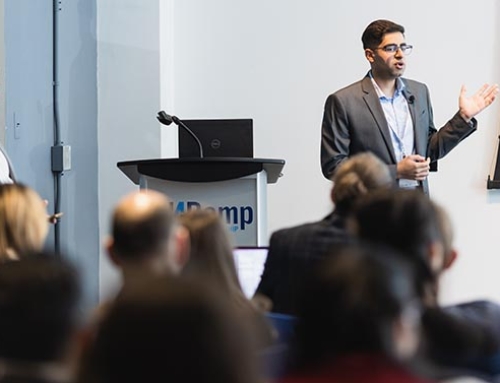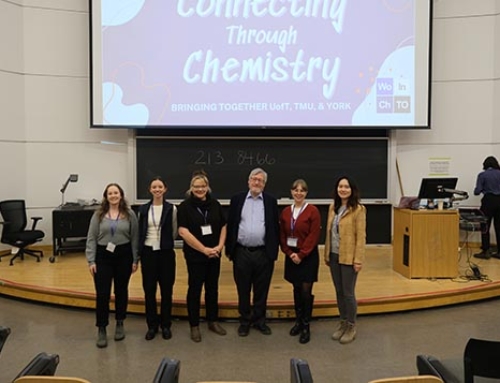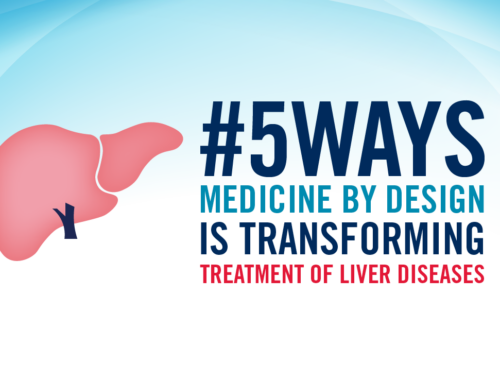
More than 40 academics, clinicians, policy-makers and industry leaders from Canada and the U.K. participated in the Challenges in the Adoption of Regenerative Medicine Therapies (CHART) workshop, including this panel, which discussed issues around adoption and implementation.
As regenerative medicine therapies advance closer to the clinic, how should their safety, clinical benefits and cost-effectiveness be evaluated? Who should pay for them — and how much — in countries with publicly funded health-care systems, such as Canada and the U.K.? What are the barriers to adopting and implementing these new and, in some cases, potentially lifesaving, therapies?
These are some of the key questions a group of academics, clinicians, policy-makers and industry leaders from Canada and the U.K. tackled at Challenges in the Adoption of Regenerative Medicine Therapies (CHART), a workshop held on June 24 and 25, 2019, at MaRS, hosted by Medicine by Design at the University of Toronto (U of T) in collaboration with CCRM, the Toronto Health Economics and Technology Assessment Collaborative (THETA) at University Health Network (UHN) and Loughborough University (U.K.).
“We think U of T and its affiliated hospitals are a perfect place to have this conversation,” Professor Vivek Goel, U of T’s Vice-President, Research and Innovation, and Strategic Initiatives, told workshop participants in his welcome remarks. “Not only is this a centre for regenerative medicine research, going back to the discovery of stem cells in the 1960s by James Till and Ernest McCulloch, but we’re also a centre that has expertise across a broad range of areas, including in disciplines like technology assessment and bioethics. By bringing together disciplines in this way, as well as collaborating with our partners, we can start to have this conversation and help inform government as it is developing policies and regulatory frameworks and engage them early on in thinking about these issues.”
Goel highlighted the importance of engaging the public about the benefits and challenges of regenerative medicine therapies. He added that these are exactly the kind of conversations that will be a fundamental mandate of the new Schwartz Reisman Institute for Technology and Society at U of T, part of a landmark $100-million gift from Gerry Schwartz and Heather Reisman that was announced in March 2019.
The workshop attracted more than forty participants from diverse sectors, including:
- academic institutions such as the University of Toronto (Joint Centre for Bioethics and the Institute of Health Policy Management and Evaluation), the University of Waterloo, Simon Fraser University, and the University of York in the U.K.;
- health-care institutions such as University Health Network and the Hospital for Sick Children;
- commercialization entities such as CCRM, JLABS @ Toronto, MaRS Partnerships and MaRS Innovation;
- health technology assessment organizations such as the Canadian Agency for Drugs and Technologies in Health (CADTH) and the National Institute for Health and Care Excellence (NICE) in the U.K.;
- stakeholders in Ontario health-care policy, delivery and research, including the Ontario Ministry of Health, the Ontario Institute for Cancer Research and Ontario Genomics;
- senior leaders from pharmaceutical and biotechnology companies; and
- others such as the Global Alliance for Genomics & Health, The Office of Health Economics and the Oxford Academic Health Science Network.
A primary outcome of the workshop is the creation of a network of stakeholders in Canada and U.K. who will drive discussion and research and influence policymaking around healthy technology assessment, reimbursement and adoption of regenerative medicine therapies. The first step toward that goal will be the publication of a white paper this fall that will summarize the challenges and innovative models that were identified at the workshop to catalyze further workshops and inform advocacy efforts.
“The research we are funding has the potential to dramatically improve treatments for many diseases and transform aspects of health care,” said Michael Sefton, executive director of Medicine by Design, a University Professor at the Institute of Biomaterials & Biomedical Engineering (IBBME) and the Michael E. Charles Professor in the Department of Chemical Engineering & Applied Chemistry. “It is important for Medicine by Design to be on the leading edge of policy and ethical discussions around evaluating and implementing these novel therapies in medical practice, ensuring equity and access. These new therapies are likely too expensive, and it is important to think through alternative ways for managed health-care systems to pay for them. We look forward to continuing to collaborate with this network of partners who have come together through this workshop.”
James Kusena, a member of the workshop organizing committee and a 2018 alumnus of Medicine by Design’s Summer by Design workshop, will also draw on the workshop for his PhD dissertation at the University of Loughborough’s Centre for Biological Engineering.
Other members of the organizing committee included Dr. Murray Krahn, Director of THETA, Siofradh McMahon, Senior Manager of Clinical Translation & Regulatory Affairs at CCRM, and Medicine by Design staff.





